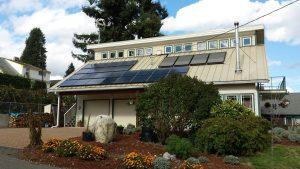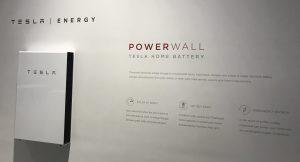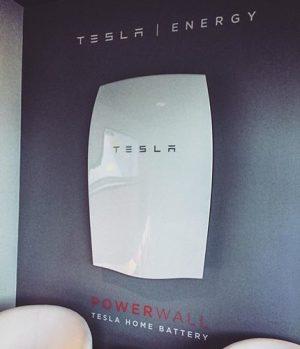As more and more people are becoming interested in switching to clean and renewable energy sources, a new website dedicated to providing information about solar power systems and everything that comes with them has recently launched. This website is designed to be a one-stop-shop for anyone looking to learn about solar energy and how to make the switch.
Solar Power: The Clean and Sustainable Energy Source of the Future
Solar power systems have been gaining popularity in recent years as a clean and renewable energy source. These systems harness the power of the sun to generate electricity for homes and businesses. The future of solar power looks bright as technology continues to improve and costs continue to decrease.
Cost of Solar Power Systems Continues to Decrease, Making Them More Accessible to Consumers
One of the biggest advantages of solar power systems is that they are becoming increasingly affordable. As technology improves and economies of scale come into play, the cost of solar panels and other equipment continues to decrease. In addition, many governments offer financial incentives and rebates to encourage the adoption of solar power.

Federal and state-level programs to buy solar power systems?

The United States has various federal and state-level programs that provide financial incentives for the installation of solar power systems, such as the Investment Tax Credit (ITC) and the Renewable Energy Production Tax Credit (PTC). These incentives can help to offset the cost of solar power systems and make them more accessible to homeowners and businesses. State-level incentives can include rebates, grants, property tax exemptions, and net metering laws. Community solar programs also allow multiple homeowners or businesses to share the benefits of a single solar power system. Overall, these incentives and programs can greatly support the adoption of solar power in the United States.
To find out more try our site: Financial Incentives for Solar Power Systems in the United States
Where to Buy Solar Panels
Looking to purchase solar panels for your home or business? You have a variety of options to choose from, including online retailers, specialty solar stores, and even home improvement centers. Online retailers such as Amazon and Alibaba offer a wide selection of solar panels and accessories, while specialty stores like Renogy and Sunforce offer expert advice and personalized service. You can also find solar panels in some home improvement centers such as Home Depot, Lowes, and Menards. Be sure to compare prices and read reviews before making your final decision.
Can a house run on solar power alone?
It is possible for a house to run solely on solar power, but it would depend on several factors such as the size of the solar panel system, the energy usage of the house, and the location of the house (amount of sunlight it receives). A solar panel system would need to be large enough to generate enough energy to power the house and any additional energy needs. Additionally, a backup power source, such as a battery, may be necessary to provide power during times when the sun is not shining. It’s also important to note that most houses are connected to the grid and can sell excess solar energy back to the utility company during the day and draw power from the grid during the night.
New Solar Panels for homes? Read our 10 points guide to cut your bills.
How many solar panels are needed to run a home?
The number of solar panels needed to run a home depends on several factors, including the size of the home, the amount of electricity consumed, and the location of the home. On average, a typical solar panel system for a home can range from around 5 kilowatts (kW) to 20 kW. A 5 kW system would typically require around 20 solar panels, while a 20 kW system would require around 80 solar panels. However, it’s important to note that these are rough estimates and that a professional assessment and analysis of your home’s energy needs and roof space is necessary for a more accurate determination of the number of solar panels required.
This number can vary significantly depending on factors such as location, climate, the number of people living in the house, and the energy efficiency of the home. For example, states with warmer climates, such as Florida, tend to have higher electricity consumption due to the need for air conditioning, whereas states with cooler climates, such as Maine, tend to have lower electricity consumption. Similarly, the energy efficiency of a house, such as the use of energy-efficient appliances and insulation, can greatly influence the electricity consumption. It’s important to note that the average consumption for a household can be a bit different from the average consumption per person, as a household with more people may consume more electricity, but also may have more energy-efficient habits.
What is the best-rated product in Solar Panel Kits?
It is difficult to determine the best-rated product in Solar Panel Kits as ratings can vary based on the source and criteria used to evaluate the products. Additionally, new products are constantly being developed, and older products may have been discontinued. However, some well-known and reputable companies in the solar panel industry include:
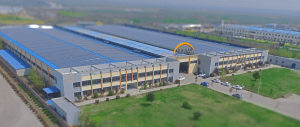
- Sunforce: They manufacture a variety of solar panel kits for homes, cabins, RVs, boats, and back-up power.
- Renogy: They provide all-in-one solar panel kits that include solar panels, charge controllers, and inverters.
- WindyNation: They offer solar panel kits for RVs, boats, homes, and off-grid applications,
- Grape Solar: They have solar panel kits for homes, RVs, boats, and off-grid systems
It’s important to note that when you are looking for solar panel kits, you should check the customer reviews and also check the certifications and warranty of the products.
It’s also important to consult with a professional to help you determine the right size and type of solar panel system for your specific needs and location.
Advances in Technology to Improve Efficiency and Storage of Solar Energy?
The future of solar power also looks promising in terms of technology. Researchers are constantly working to improve the efficiency of solar panels, as well as developing new ways to store and distribute the energy they generate. For example, advancements in battery technology have made it possible to store solar energy for use when the sun is not shining, such as at night or on cloudy days.
Tell me more about battery storage?
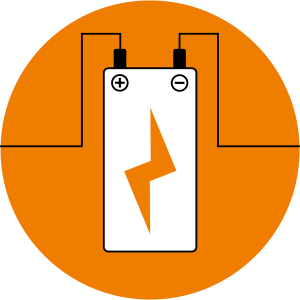
Battery backup solar power systems is an important component in solar power systems as it allows for the excess energy generated during the day to be stored and used during periods of low sunlight, such as at night or on cloudy days. This helps to overcome the intermittency of solar power, which is one of the biggest challenges facing solar power systems.
Advances in battery technology have made it possible to store large amounts of energy at a relatively low cost, making it an increasingly viable option for both homeowners and businesses. Battery storage also allows for greater energy independence and can be used as backup power during power outages. Overall, battery storage is a crucial aspect in making solar power systems more reliable and cost-effective.
We have a site which provides some more informations. Click here to go there.
Solar Power and Battery Storage: Overcoming the Challenge of Intermittency
Despite the many advantages of solar power systems, there are still some challenges to overcome. One of the biggest challenges is the intermittency of solar power. Because the sun does not always shine, solar power systems may not be able to generate electricity when it’s needed. However, advances in battery storage technology and the integration of solar power with other renewable energy sources like wind and hydro are helping to mitigate this issue.
In addition, the use of solar power systems is also expanding beyond just generating electricity. For example, solar thermal systems use the sun’s energy to heat water for use in homes and businesses, and concentrated solar power systems use mirrors to focus the sun’s energy to generate electricity on a large scale.
Solar Power’s Future: Bright and Cost-Effective with Increased Adoption and Research and Development
Overall, the future of solar power looks bright. As technology continues to improve and costs continue to decrease, solar power systems will likely become an increasingly viable option for meeting our energy needs. The increasing awareness of the importance of clean and renewable energy, the incentives and regulations in the favor of solar power and the decrease in the costs will drive the future of solar power. With continued investment in research and development, it’s likely that solar power will play an even larger role in our energy mix in the years to come.
Taking the Next Steps to Install a Solar Power System
It can be overwhelming to know where to start. Here are some steps you can take to ensure a successful installation:
- Assess your energy needs: Before purchasing a solar power system, it’s important to determine how much energy you typically use and what your future energy needs may be. This will help you determine the size and number of solar panels you will need.
- Research different solar panel options: There are many different types and brands of solar panels on the market. Research the different options available and compare their efficiency, durability, and cost.
Take a look at the different type of solar panels - Hire a professional: Installing a solar power system requires a significant amount of knowledge and skill. It’s important to hire a professional solar installer to ensure that your system is installed correctly and safely.
Find a solar installer - Obtain necessary permits and inspections: Before installing a solar power system, you will need to obtain any necessary permits and inspections from your local government. A professional installer can help you navigate this process.
- Monitor and maintain your system: Once your solar power system is installed, it’s important to monitor its performance and schedule regular maintenance to ensure it continues to operate at peak efficiency.
By following these steps, you can be on your way to a successful solar power system installation and start reaping the benefits of clean, renewable energy.
There are two types of installation your solar power systems
What is the difference between off the grid solar power systems and on grid tied solar power systems? We try to explain the best way for residential solar power systems.
